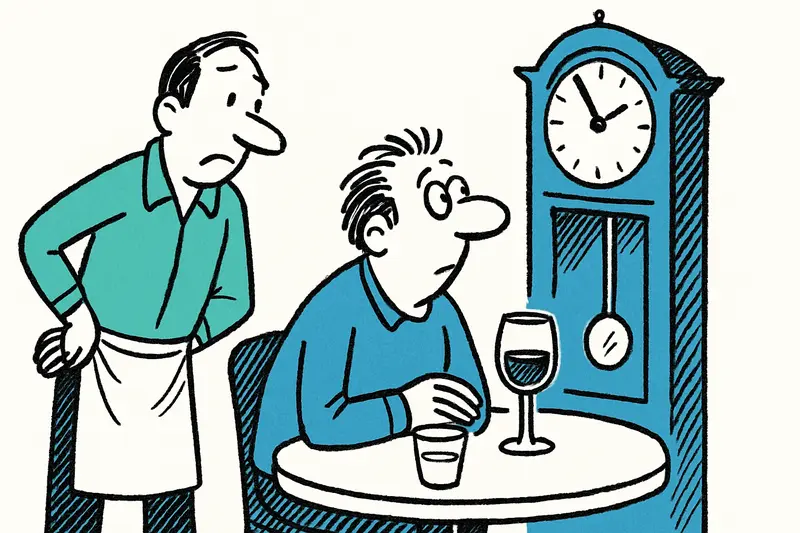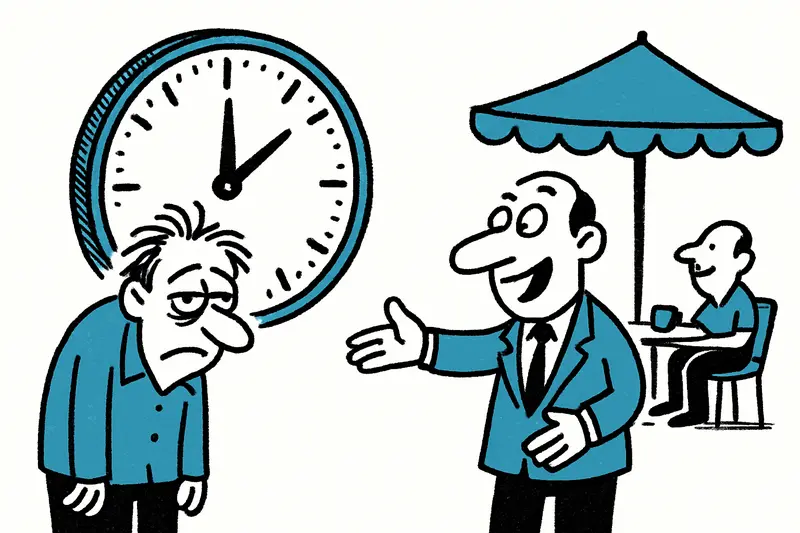The biannual clock change could end in 2026. For Palma and the coastal towns, daily life would feel noticeably different — darker mornings, longer evenings, or the reverse.
End of the time change? Sánchez puts the EU on thin ice
In Madrid the discussion is happening again, and yes: This affects us here on Mallorca. Prime Minister Sánchez wants to propose to the EU to abolish the biannual time change – ideally the new rule should take effect in 2026, provided all member states agree. It sounds like bureaucracy, but it is daily life: schools, bakeries and port workers would feel the consequences.
What would change concretely?
There are two simple variants, and each has a clear winner and loser. If summer time remains permanent (UTC+2), many mornings on Mallorca would start in the dark. In Palma, the sun might rise only around 8 a.m. in the depth of winter. Start of school at 8 a.m.? For some children that means getting up and going into the night. But the evenings would stay bright for longer – ideal for terraces on the Passeig Mallorca or for evening markets in Pollença.
If instead standard time (UTC+1) is kept, the days would start brighter: in winter the sun would rise closer to 7 a.m. That would ease mornings for commuters and families. But the summer evenings would be shorter – sunsets at 8:30 p.m. instead of the usual 9:30 p.m. For restaurants with outdoor seating, beach bars and tour operators, it would be noticeable.
Split: Health versus Economy
Chronobiologists on the mainland say quite clearly: for the human biorhythm, standard time fits better. Better sleep, less morning stress – that's the simple calculation. Business people and tourism providers think differently. More light in the evening means more customers, longer terrace hours and more often full tables late into the night.
A survey shows that many Spaniards lean toward daylight saving time – the feeling of longer days is strong. But there is also uncertainty: some like the idea of having light earlier in the morning, others simply enjoy the long evenings in summer.
How Mallorca feels the decision
Imagine a January morning at the Sóller harbour: fishermen sorting nets, clocks striking 7:30, but it is still dark – a switch to daylight saving time would push this moment into even deeper darkness. On the other hand: the promenade in Cala Millor fills up on a mild October evening only after 6 p.m., because the sun stays longer. This is not only coziness; these are revenues.
The debate is thus not only academic. Authorities, schools and businesses have to plan. And us here on the island? We discuss at the cafe in front of the bakery whether we value the longer evenings more than a brighter morning.
In short: The clock may stay the same – but we cannot decide alone, and that makes the difference for Mallorca.
Similar News
Nazi graffiti on Picornell bust in Palma: memory desecrated
In El Molinar, the bust of anti-fascist activist Aurora Picornell was smeared with swastikas and the number 88. The city...

German Tourist Robbed at Ballermann – Phone Tracked Down in Romania
After a theft on Playa de Palma, a young German man managed to locate his smartphone via a tracking service—thousands of...

Balearic Islands Demand Permanent Daylight Saving Time – What It Means for Everyday Life Here
The Balearic Islands are pushing to permanently set the clock to daylight saving time. Especially gastronomy, tourism, a...

Balearic Islands push for permanent daylight saving time – what it means for Mallorca
The Balearic regional parliament wants permanent daylight saving time — citing concerns about sunset times, gastronomy, ...

Spain and Algeria Reactivate Repatriation Agreement – Implications for the Balearic Islands
After talks in Algiers, Madrid and Algiers plan to revive a repatriation agreement that has been little used for years. ...
More to explore
Discover more interesting content

Experience Mallorca's Best Beaches and Coves with SUP and Snorkeling

Spanish Cooking Workshop in Mallorca

Valldemossa and Valley of Sóller Tour in Mallorca

FUN Quad Mallorca

Shared 4-hour catamaran trip with tapas

